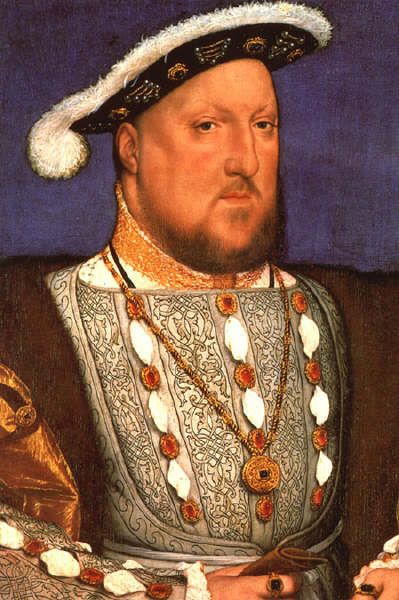| 
O COME LET US ADORE HIM (OR HER) 
If there was one time of year that an English sovereign could count on being surrounded with all the trimmings and trappings of "fondness" and "friendship" - however forced they might be - it was during the Twelve Days of Christmas, which stretched from December 25 through Epiphany (or Twelfth Night) on January 6. Here, under the guise of devotion, celebration and festivity, the monarch and those closest to throne engaged in nearly two weeks of concerted power politics: networking, lobbying, favor-asking - and favor granting. It is appropriate that one of the favorite forms of Christmas entertainment was the masquerade . . . at Christmas court, the maneuvering was often disguised, the intrigue sub rosa. With religion playing such a vital role in the lives of most people, ancient rulers could do worse than to capitalize on the symbolic connections between the "king of the realm" and the King of Heaven. Like the mighty Charlemagne before him, William the Conqueror chose Christmas Day for his 1066 coronation as king of England (do we detect a not-so-subtle" The Savior Cometh" theme?). Most medieval monarchs chose Christmas Day for the traditional "laying on of hands", a ritual meant to transfer the king's "healing" power to those afflicted with certain skin ailments. The ceremonial wearing of the official halo-bright Crown of State, further underscored the sense that the monarch was omnipotent, above and beyond all other mortals. Naturally, such glorious display would be for naught without an appreciative audience. Medieval and Tudor monarchs made certain the house was packed, summoning not only peers who would provide peerless company, but including anyone with whom the king or queen might want to have a "little word". An invitation to the sovereign's Christmas court was a command performance, one that the nobility and lower-status court hangers-on could not well refuse. Most would not have considered declining - not only would the royal family be royally offended, but the opportunity to be part of the posturing, networking, conniving and gossip was too delicious to miss! Still, the only acceptable excuses for a Christmas "no show" were war, Crusades, grave illness, and childbirth. Woe to those who stretched the truth a little when offering their regrets. Queen Elizabeth was particularly adamant that her male courtiers remain at court for the 12 days of festivities. Many a noblewoman must have spent Christmas warmed only by her own wrath at being abandoned in favor of the queen. Occasionally, Christmas guests overstayed their welcome. Elizabeth, desperate to rid herself of her erstwhile suitor the Duke of Anjou in 1551, tried to appeal to his parsimonious nature by suggesting he head home before New Year's, thus avoiding the need to indulge her with an expensive gift. Instead, he bestowed upon her a jeweled anchor brooch and stayed on until February. Elizabeth was not amused. Diplomacy did not take a backseat during the holiday season. English monarchs frequently used their Christmas courts as vehicles for establishing good will with worthies from other nations. Henry IV staged an elaborate joust on the tourney grounds at Eltham Palace for Emperor Manuel II of Constantinople in 1400. His grandfather, Edward III, had feted two past enemies - King David of Scotland and King John of France - in grand-style for Christmas 1358. (The fact that the foreign kings were prisoners-cum-guests-of-honor apparently did little to dampen their merriment!) One important guest at several of Henry VIII's Christmas courts was conspicuously absent from the formal celebrations - Anne Boleyn. Although the king commanded mistress Anne's presence for the holidays at Greenwich, for three consecutive years she was relegated to a circumscribed, behind-closed-doors role. For the sake of appearances, Katherine of Aragon continued to preside over Henry's feasts and fetes through the 1530 holidays. By 1531, the tide had turned in Anne's favor. Not yet queen, she was nonetheless installed in the Queen's Lodgings at Greenwich, although Henry was sensitive enough to have her avoid the court's formal Christmas celebrations. Her fifth Christmas at Greenwich was another matter; by 1532 Anne was queen in all but name, presiding over the court festivities with such spectacular excess that temporary kitchens had to be erected on the palace grounds. There has been some speculation that Elizabeth I was conceived while Henry and Anne were making merry that year. 
|
 Free Forum Hosting
Free Forum Hosting